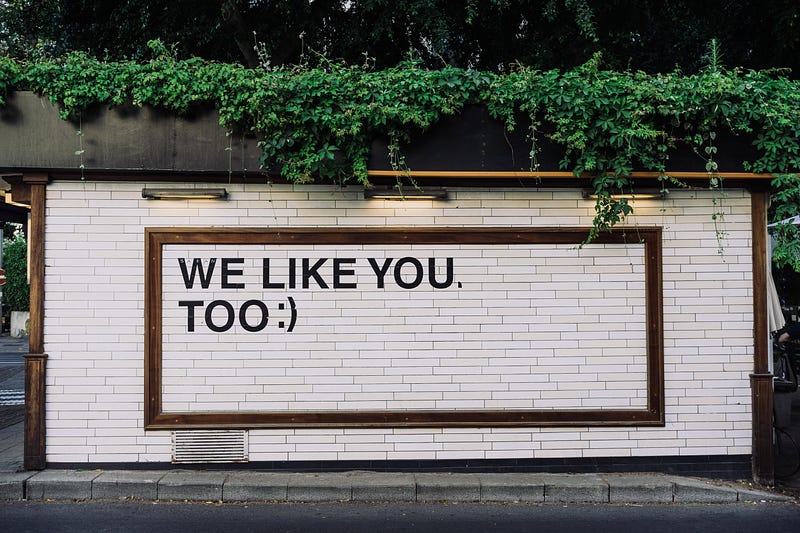How Privacy-First Social Media Fails
A story of MeWe and the bad actors who now call it home.

How Privacy Centered Social Media Fails to be Safe
Social media is a cranky teenager — after all, it’s only been around for a handful of years. If we set the clock rolling with MySpace, which broke ground in 2003, we’re looking at a system of global communication that’s still an adolescent. And, like any late-teen looking to figure out life, social media is encountering some unpleasant truths about the world.
MeWe is considered one of the “newcomers” to the social media sphere, founded in 2012 as “Sgrouples” (a name they did right in abandoning).
MeWe is a privacy-focused social networking and messaging service, ostensibly trying to provide the same (or better) features as Facebook, but without the tracking, advertising, algorithmic post sorting, and massive data-security holes of its far bigger brother. These are all good goals, and have long been on my list of reasons why Facebook is a dangerous entity in our digital times.
But the road to Hell is paved with good intentions, and MeWe’s road has rails.
Extremism on WeMe

In the first month of 2021, MeWe gained over 2.5 million new members, an influx which appears to be directly related to the 2021 violent attack on the United States Capitol. As major social media sites tried to reassure investors by aggressively blocking hate speech, those offenders simply went deeper undergound, and found the perfect home on MeWe.
At the time of this writing, MeWe features a whole host of concerning social groups. For instance, one MeWe group is dedicated to the New York Police Department, where members are encouraged not to use each other’s names for fear of legal issues, and where “PC” talk doesn’t need to be worried about).
Other, more expected extremist groups are plentiful, such as repeated calls for the overthrow of the United States government. Most are rife with profanity and aggressive language to help get the point across: “This is our space, and we’ll attack anyone who disagrees with us as violently as we can get away with”.
Other conservative profiles, like the one for Governor Kristi Noem of South Dakota, are featured on the site, and while her rhetoric there appears no worse than it does on Twitter, the point is clear: public officials are using a privacy-centered app that is ground zero for extremist far-right groups (and it doesn’t take a massive amount of inference to assume that some of those members overlap).
Yet, MeWe has also done some good in the world of privacy.
The largest current growth area in its membership comes from outside North America. During the Hong Kong unrest, a huge number of Facebook users in Hong Kong switched from Facebook to MeWe to ensure that they could publish without Chinese censorship taking place.
That leads us back to the point: services like MeWe are good, but not if they’re overwhelmed by extremist movements, far-right agitators, and misinformation.
The solution to misinformation?
One problem to be faced is moderation. On one hand, the privacy-centered nature of MeWe is good: it provides people a place to communicate and choose with greater assurance that they’re sharing their information only with a select group of human beings (rather than giant data-skimming programs).
On the other hand, the difficulty of moderating a massive social networking site, and one specifically dedicated to privacy, is nearly impossible, especially for for-profit companies.
J.M. Berger, a researcher of extremist movements, told OneZero that “With smaller platforms, content moderation is a big challenge.” And MeWe’s CEO made a point of saying that “MeWe is serious about putting limits on what people can say.” But how serious is it, really?
The Moderation Problem of MeWe

When approached by OneZero on the issue of moderating MeWe, Mark Weinstein said, “Have you tried to moderate 15 million people? [Extremists are] appearing on Twitter and Facebook — they’re everywhere. Why single out MeWe? We’re better at it than those guys are.”
Perhaps MeWe is doing all it can. With a tiny moderation team, limited resources, and an unexpected surge in users hailing from around the world, MeWe has its work cut out for it.
And yet, MeWe only deleted the public groups of known hate-speech, pro-violence, and misinformation-heavy groups after OneZero published their article and made the point that reports made during their own fact finding mission on the app were all but ignored. MeWe did finally act, but only when there was extreme outside pressure to do so.
The point really is, “why single out MeWe?” And the answer is simple: because MeWe has to do better than the apps that came before.
It is true that the hate-speech and misinformation groups that currently toxify MeWe were harbored and fostered, for years, by Facebook, Twitter, and YouTube.
The big tech companies are 100% responsible for the monsters we’re facing in the social sphere right now. Only recently did those platforms crack down (and their resources allowed them to do so with some effectiveness). The big platforms were happy to allow extremists the use of their services because it proved beneficial.
MeWe cannot follow in the footsteps of these giants.
If MeWe is going to set a precedent, it needs to take real steps to ban the sort of content that its usage policy, and its CEO, says that the service abhors and will not tolerate.
Not piecemeal, as other social services have done, but unilaterally and completely. They need to show new potential users that the active and public userbase of MeWe are not extremists, but ordinary people who just want to create meaningful social connections.
The bad news: MeWe can’t remove its best customers

I anticipate that my suggested action will not take place on MeWe, but not for the reasons that the CEO has previously cited.
Moderation of a social network is difficult and expensive, true, but right now, it’s also not in the social service’s best interests to remove the bad actors from the crowd because… then the crowd gets smaller.
MeWe’s recent surge in membership numbers was a giant boon for the tiny social startup. Since many of those members are no-doubt paying for the advanced exclusive services that MeWe provides, and upon which its growth relies, it has already linked itself with hate speech, violence, and the very worst the internet has to offer. It relies upon the dregs in order to survive.
This is why the answer to our social media woes can not bet any one single social media platform. In order for real change to take place, normal people need to be able to control our data, and our social interactions. We need to kick Facebook, Twitter, Hive, and all the rest to the curb! That’s why the recent surge of millions of new users to the Federated service Mastodon so cool.
